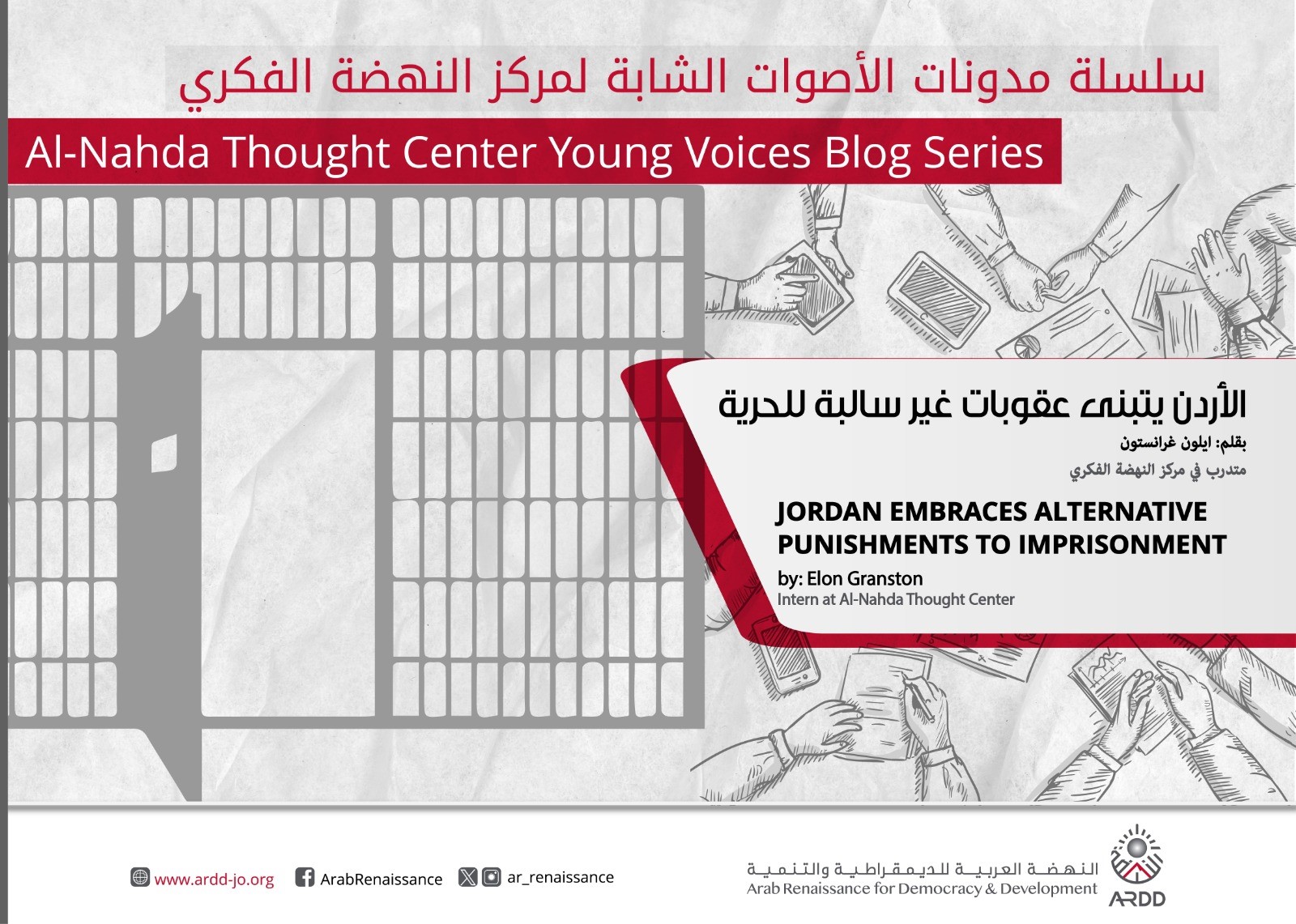By: ُElon Granston, intern at Al-Nahda Thought Center
Few things are more detrimental to society than criminal activity. People fear for their safety, become suspicious of their neighbors, and lose trust in institutions meant to protect them. At the same time, however, there are few things more threatening to individual liberty than the legal authority of a government to lock people in jail. Moreover, all crimes are not created equal. Not every offense warrants incarceration. But neither does every offense deserve total amnesty.
It is this idea that underlies one of the core tenets of the Jordanian Government’s new justice sector strategy for the years 2022-2026. The new strategy has five key pillars: 1) developing litigation procedures, 2) developing judicial bodies, 3) facilitating access to justice, 4) developing infrastructure, and 5) updating legislation.
While the government has been making great strides in many of these areas since the strategy’s announcement, one in particular stands out. One of the sub-objectives of the first pillar is to enhance fair trial guarantees, which involves projects to expand the implementation of alternatives to detention.
In Jordan, these alternatives frequently take the shape of behavior rehabilitation programs, community service requirements, travel bans, and electronic monitoring in lieu of prison sentences for less serious crimes. In 2022, judges in Jordan handed down a total of 4,193 rulings with alternative punishments, including sentencing 1,400 first-time offenders to community service. While there is not yet complete data on the number of people sentenced to alternative punishments in 2023, there is limited data that suggests continued emphasis on these alternatives. For example, in May courts issued 300 alternative sentences to defendants.
Alternatives such as these have been proven to benefit society and pose several advantages over incarcerating every criminal. Compared with confinement in prison, community-based punishments are not only cheaper but also more likely to deter future criminality without any of the other societally deleterious effects posed by incarceration.
Many of the proven causes of crime including being raised in a single-parent household, poverty, and maintaining delinquent peers are ameliorated by these alternative punishments whereas they are directly exacerbated by incarceration. For instance, if a man is incarcerated, his family may lose part or all its previous income, his children will be raised in a single-parent household, and he will be limited to contact primarily with other criminals while in prison, all of which increase not only his but also other people’s likelihood of future criminality.
The United States currently offers a great case study into the damage done to society when such effective alternatives to incarceration are insufficiently utilized. The country’s failure to properly implement community-based alternatives to detention is evidenced by the fact that it is suffering from a mass-incarceration crisis. The United States currently maintains the second highest prison population in the world, roughly 1.68 million people. Furthermore, it incarcerates 716 people for every 100,000 residents, the highest rate in the world and more than five times higher than most countries. By contrast, Jordan incarcerates only 185 people for every 100,000 residents, which, while still higher than many countries, is still about four times less than the American incarceration rate.
Despite the United States’ sky-high incarceration rates, crime is still prevalent throughout the country. That is because such high levels of incarceration do not depress crime rates, but rather contribute to increased criminality, often through recidivism. In the United States, 70 percent of people incarcerated will have reoffended within 5 years, a recidivism rate that studies suggest would be lower in the face of properly implemented community-based alternatives, like the ones adopted by the Jordanian Government.
Thus, the Jordanian Government’s recent reforms to the Code of Criminal Procedure offer a great, much needed advancement in criminal justice reform. They not only increase individual liberty by reserving harsher punishments for more egregious crimes, but they will also have a more positive, long-term impact on Jordanian society as the effects of over-incarceration are avoided. And we should be all the more encouraged by His Majesty King Abdullah II Ibn Al Hussein’s recent meeting with Judicial Council President Mohammad Ghazou in which King Abdullah stressed the importance of continuing to expand the implementation of alternative punishments in Jordan.


